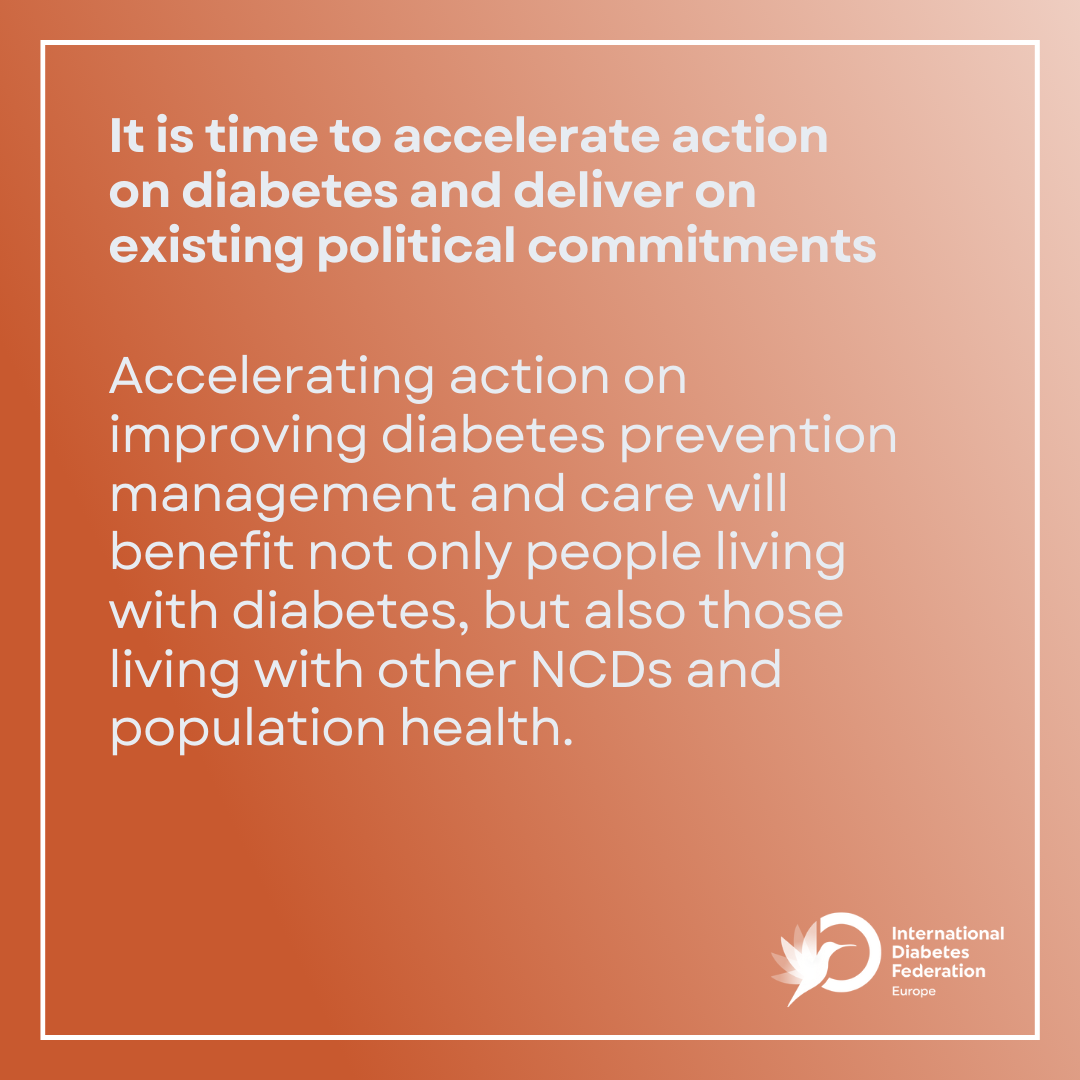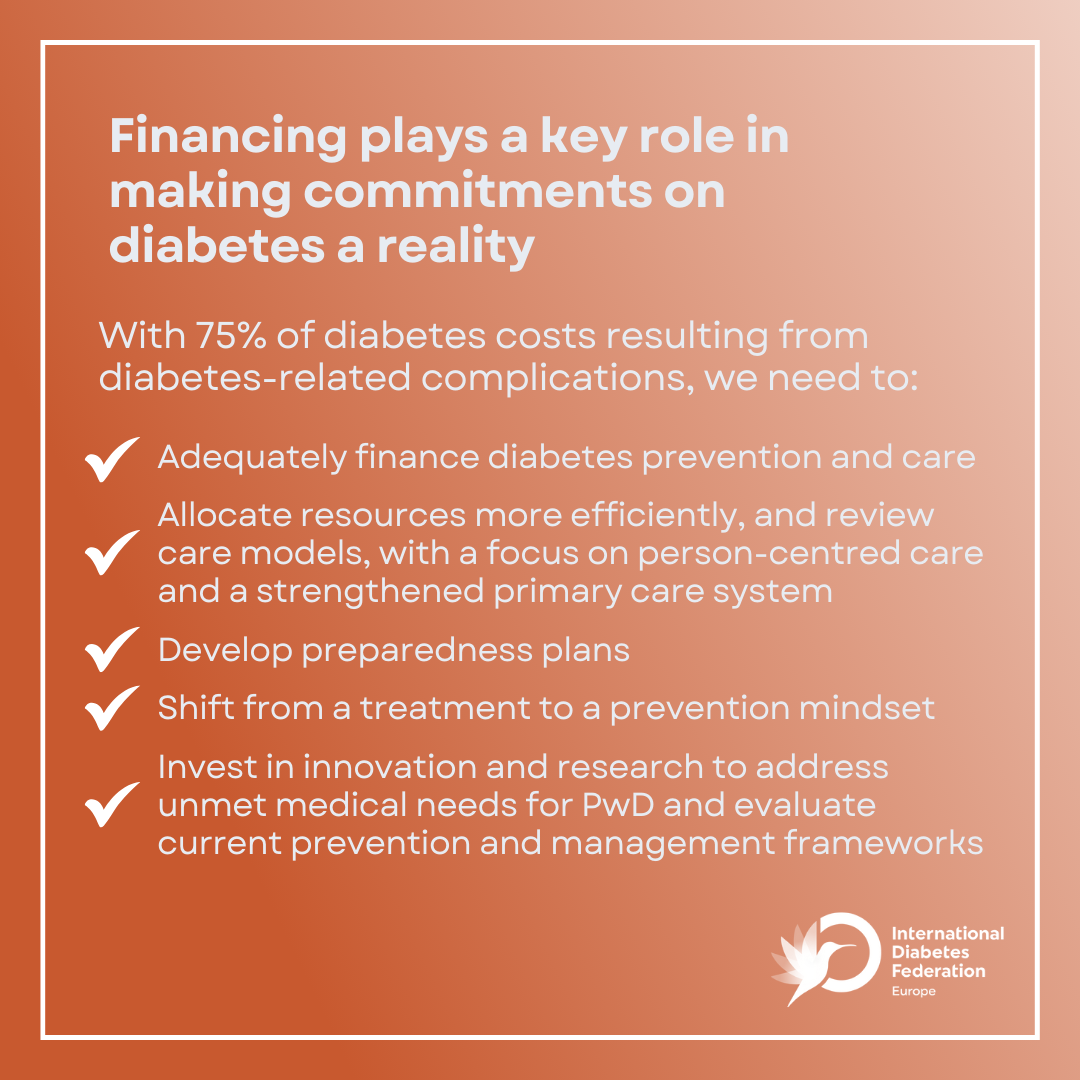A strong political recognition of diabetes as one of the most pressing health challenges of our time, which needs to be re-affirmed in the current permacrisis era
In recent years, a growing political momentum began to reflect the urgent need to address the burden of diabetes. Several global initiatives were launched designed to improve diabetes prevention management and care, such as the WHO Global Diabetes Compact (2021), the World Health Assembly (WHA) Resolution for reducing the burden of NCDs (2021), the Global Targets for Diabetes at the 75th WHA (2022) and the new European Parliament Diabetes Resolution (2022). However, these significant policy developments have been overshadowed by the beginning of what is termed, the “permacrisis”, exemplified by the COVID-19 pandemic and other emergencies including wars and natural disasters, which are exacerbating current challenges and impeding progress in achieving better diabetes prevention and care delivery.
Reaffirming political commitments and increasing collaboration between stakeholders is therefore crucial to deliver on the objectives set by these initiatives. Strong political commitment will be key over the coming years to develop solutions adapted to the permacrisis era to improve the detection and diagnosis of diabetes as well as the quality of care and the prevention of complications, and ensure equal access to the right quality treatment at the right time and place.
No action can be successful without adequate financing and effective resource allocation
Financing and the effective allocation of resources is essential to make commitments on diabetes a reality. With 75% of diabetes costs resulting from diabetes-related complications, health systems urgently need to shift from a treatment to a prevention mindset by increasing their focus on risk reduction and person-centred, holistic and integrated care. Currently, the burden of treating complications rather than preventing them weighs not only on those living with the condition and experiencing a loss in quality of life and potentially, premature death, but also on our healthcare systems and economies. Allocating resources towards strengthening primary care would represent an investment rather than a cost. Primary care is the first line of action for the prevention and treatment of diabetes. The majority of people living with type 2 diabetes (T2D), for example, are seen at this level with primary care professionals also playing an essential role in the identification of people at risk of developing the condition, their early detection, diagnosis as well as treatment. Investing at this level would improve health outcomes and reduce the need for the costly acute and chronic care associated with the treatment of complications.
Investments in research and innovation are also essential to boost the adoption and the development of novel approaches to diabetes prevention, management and care that can address the existing unmet medical needs for PwD.
Allocating resources to the development of strong preparedness plans will also strengthen the resilience of our healthcare systems. In the context of the permacrisis, health systems should be prepared and equipped to ensure uninterrupted access for all PwD to the care they need to optimally manage their condition and prevent the development of diabetes-related complications.

